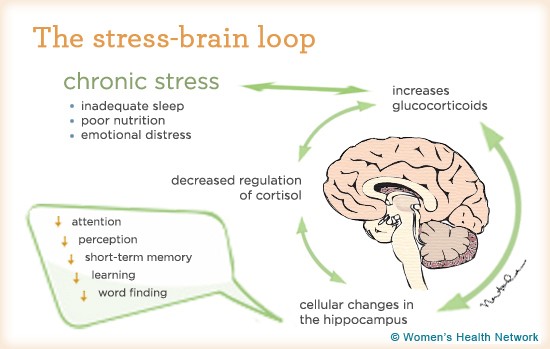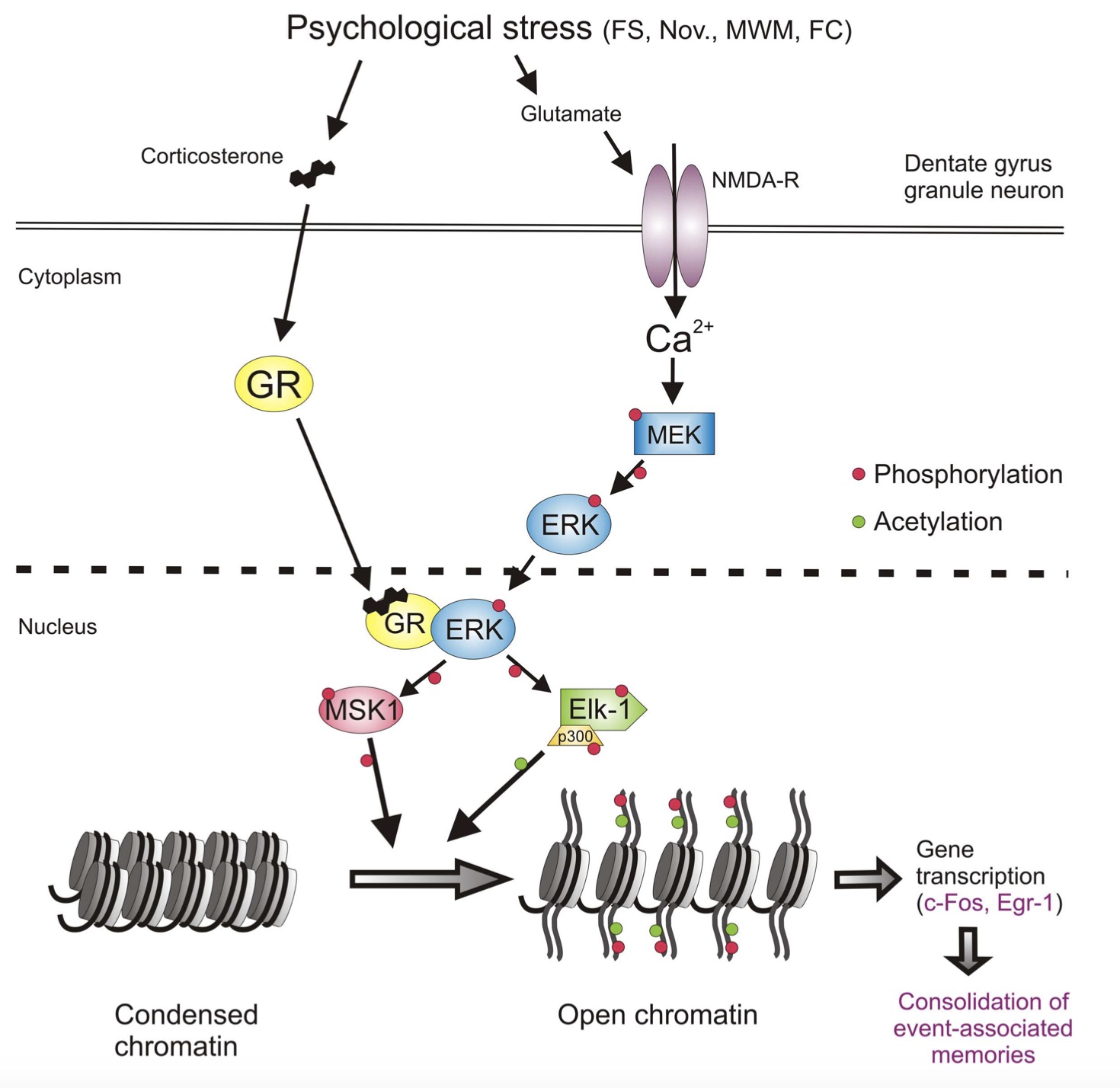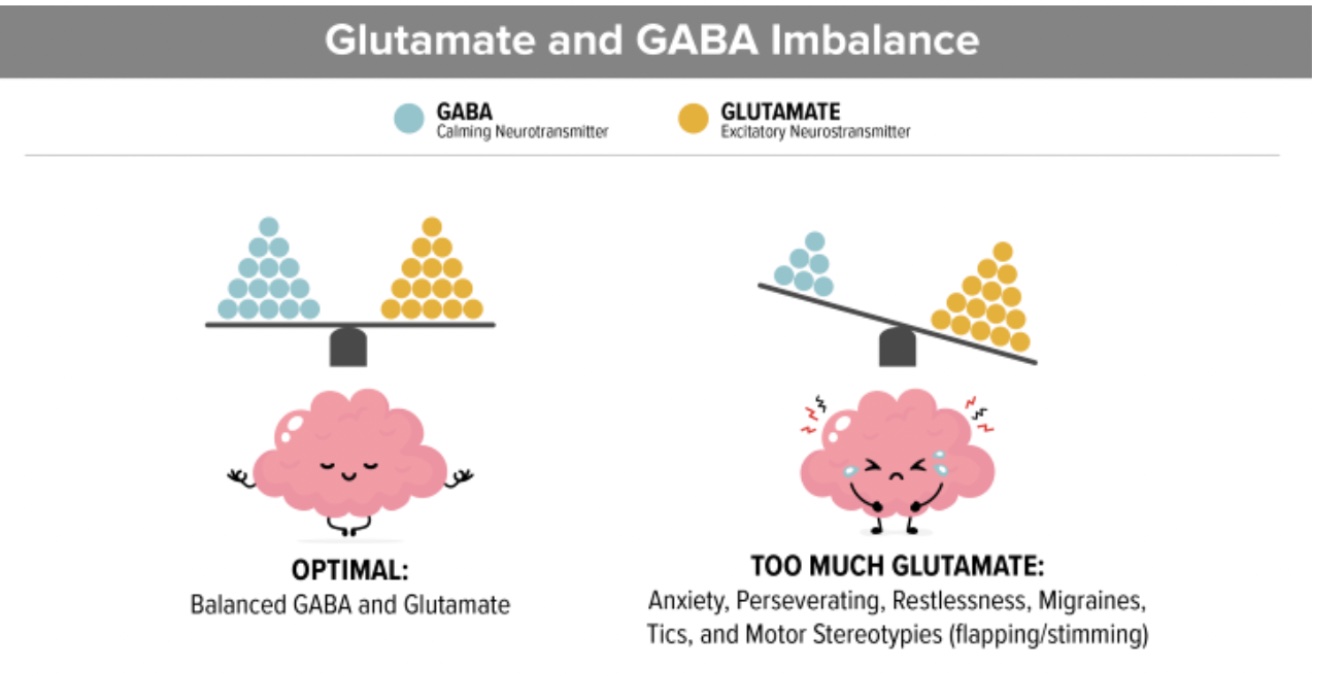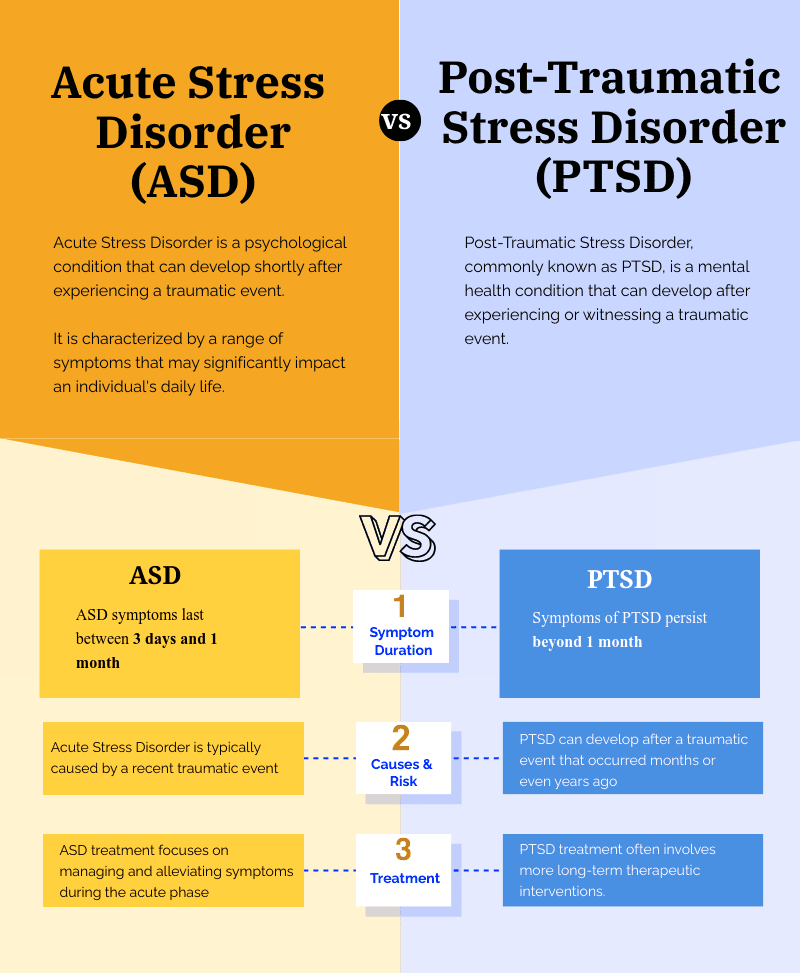Effects of Stress on Learning and Memory Processes
Psychologically stressful events evoke a long-term impact on behavior through changes in hippocampal function. These changes in glutamatergic, GABAergic, and glucocorticoid hormone signaling lead to altered regulation of gene transcription. Specifically, these epigenetic changes moderate the ERK/MAPK signaling pathway and the induction of c-fos and egr-1 genes.
Without memory, we could not function as human beings. We need memories to understand our environment and make decisions based on past knowledge. The hippocampus is an important brain region for memory formation. It’s vital for the consolidation of contextual memories. During stressful events, there is an increase in the secretion of glucocorticoid hormones (i.e. cortisol) that enhances memory formation in the hippocampus. The hypothalamus’s dentate gyrus (DG) is another important brain region involved in memory formation. The glucocorticoid receptors (GRs) in the dentate gyrus were found to be involved in the consolidation of adaptive responses based on memories of initial experiences.
In stressful events, we often form strong memories, however not all stressful events incapacitate people and keep them from their daily lives. So, why does 10% of the population develop PTSD? When people cannot adapt and cope after stressful events, they can develop an anxiety disorder like post-traumatic stress disorder (PTSD).

Figure 1. How stress affects our regulation of cortisol and impacts memory formation (3).
A Signaling Pathway Involved in Learning and Memory Processes
Calcium activates the NMDA receptor and mediates the ERK-MAPK signaling pathway. The activated ERK pathway helps form the dual histone marks in the DG granule neurons. When GRs are activated, they act like scaffold proteins for the ERK pathway), pERK1/2 then phosphorylates MSK1/2 and Elk-1. MSK phosphorylates serine (S10) and Elk-1 acetylates lysine (K14) of histone (H3) molecules within the c-fos and egr1 gene promoters. These modifications make histones less positive which causes DNA to unwind from them, allowing transcription factors to bind. Histone modifications and chromatin opening are needed to provide transcription factors access to their DNA binding sites.

Figure 2. Psychological stress-activated signaling pathways in dentate gyrus granule neurons drive epigenetic modifications underlying the induction of gene transcription and the consolidation of behavioral responses and memory formation in the hippocampus (1).
Epigenetics
Epigenetics is the study of how your behaviors and environment can cause changes that affect the way your genes work. Epigenetic changes that occur as a result of stressful events cause an increase in dual histone marks (H3S10p-K14ac). These dual histone marks are hypothesized to open chromatin’s structure by unraveling the histones from DNA so that transcription factors can bind to previously silent genes and IEG promoters. Immediate-early genes (IEGs) are crucial for memory formation, like c-fos and egr-1.
Nothing in Anxiety Disorders like PTSD makes sense, except in the light of stress-driven increases in dual histone marks and IEGs.
GABAergic Tone
The GABAergic system, known for its role in regulating anxiety states, influences the responsiveness of granule neurons in the DG to psychological stress. High anxiety levels are associated with low GABA activity, which can lead to debilitating effects. Balancing excitatory and inhibitory inputs is crucial for maintaining healthy information flow in brain circuits.

Figure 3. An imbalance of excitatory and inhibitory neurotransmission can lead to anxiety (2).
How do Strong Memories of Stressful Events Turn into PTSD?
When a stressful event overwhelms a person’s coping mechanisms, it can lead to the formation of strong memories. Overactive signaling pathways involving NMDARs, GRs, ERK/MAPK, MSK, and Elk-1 contribute to heightened stress responses and the consolidation of these memories. Higher levels of anxiety can further strengthen these memories and increase the likelihood of maladaptive responses to future stressful events.
Stressful situations have a profound impact on memory formation, often resulting in strong memories that can lead to anxiety disorders like PTSD. Understanding the intricate mechanisms involved, from epigenetic changes to neurotransmitter dynamics, is crucial for developing targeted interventions and therapies to support individuals affected by these conditions.

Figure 4. PTSD vs Anxiety (4).
